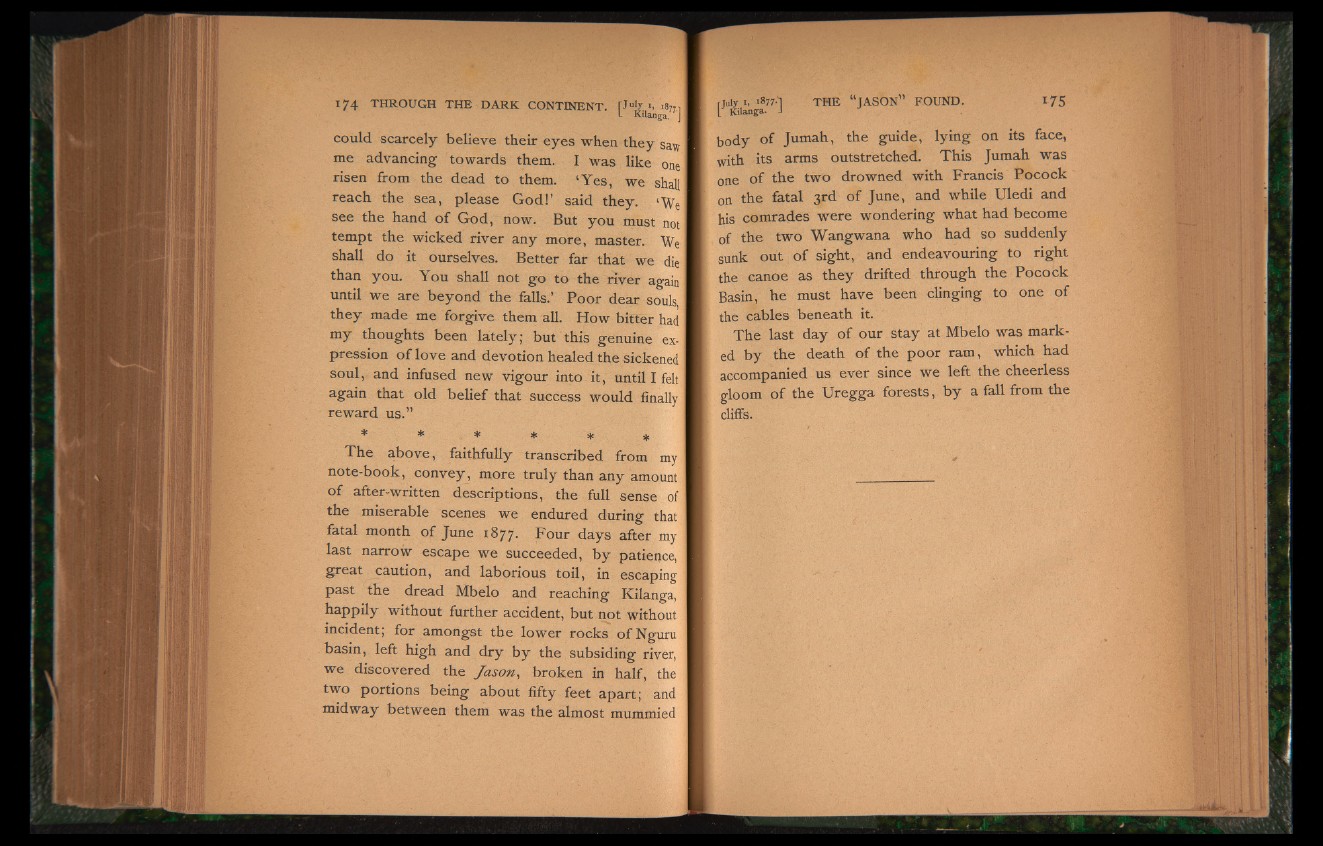
L Kilanga. J
could scarcely believe their eyes when they saw
me advancing towards them. I was like one
risen from the dead to them. ‘Yes, we shall
reach the sea, please God!’ said they. ‘We
see the hand of God, now. But you must not
tempt the wicked river any more, master. We
shall do it ourselves. Better far that we die
than you. You shall not go to the river again
until we are beyond the falls.’ Poor dear souls,
they made me forgive them all. How bitter had
my thoughts been lately; but this genuine expression
of love and devotion healed the sickened
soul, and infused new vigour into it, until I felt
again that old belief that success would finally
reward us.”
* * * * * *
The above, faithfully transcribed from my
note-book, convey, more truly than any amount
of after-written descriptions, the full sense of
the miserable scenes we endured during that
fatal month of June 1877. Four days after my
last narrow escape we succeeded, by patience,
great caution, and laborious toil, in escaping
past the dread Mbelo and reaching Kilanga,
happily without further accident, but not without
incident; for amongst the lower rocks" of Nguru
basin, left high and dry by the subsiding river,
we discovered the Jason, broken in half, the
two portions being about fifty feet apart; and
midway between them was the almost mummied
body of Jumah, the guide, lying on its face,
with its arms outstretched. This Jumah was
one of the two drowned with Francis Pocock
on the fatal 3rd of June, and while Uledi and
his comrades were wondering what had become
of the two Wangwana who had so suddenly
sunk out of sight, and endeavouring to right
the canoe as they drifted through the Pocock
Basin, he must have been clinging to one of
the cables beneath it.
The last day of our stay at Mbelo was marked
by the death of the poor ram, which had
accompanied us ever since we left the cheerless
gloom of the Uregga forests, by a fall from the
cliffs.